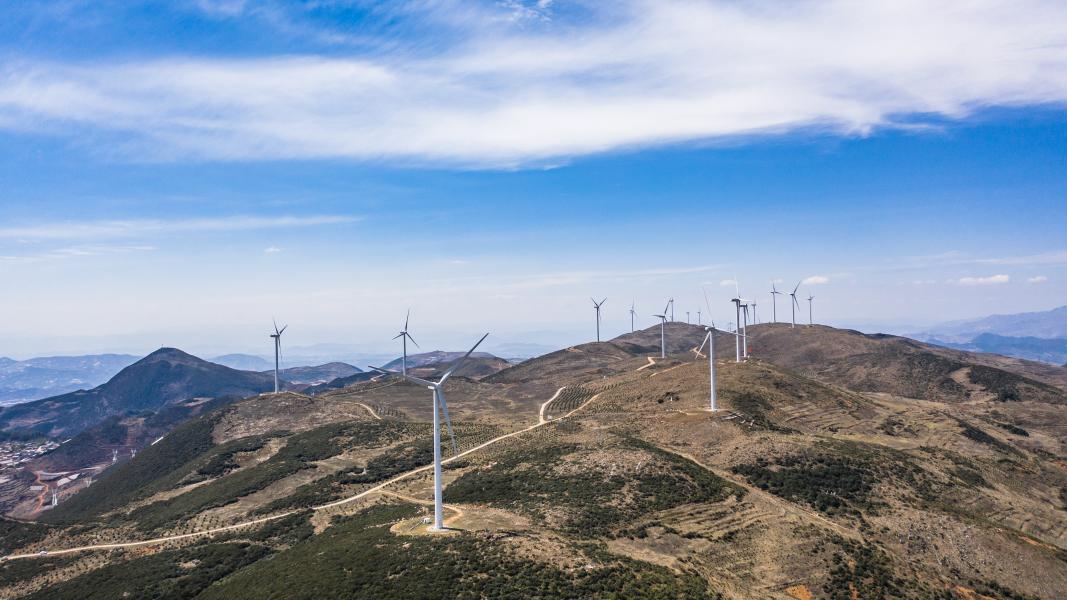
National flags of United Nations member states flutter in the wind outside the UN headquarters in New York, the U.S. /Xinhua
National flags of United Nations member states flutter in the wind outside the UN headquarters in New York, the U.S. /Xinhua
The world has been waiting to see the development of China-U.S. relations, probably one of the most important bilateral relations in the world, under the new administration of U.S. President Joe Biden.
At his delayed first presser, Biden said that the U.S. seeks "stiff competition with China" and he is not going to let China become the leading country. The U.S. has even passed a bill recently portraying China as its "near-peer competitor."
However, China has been stressing at different occasions and at all levels that it pursues the path of peaceful development and an independent foreign policy of peace, and it will uphold multilateralism and support the central role of the United Nations in international affairs.
Mitigating the pandemic fallout
China continues to be an advocate for global vaccination equality and takes initiatives in global economic recovery.
According to the Chinese Foreign Ministry, as of March 30, China had provided vaccine assistance to 80 countries and three international organizations, and had entered into vaccine R&D and production cooperation with more than 10 countries.
Based on official data released Friday on China's economic growth in the first quarter of 2021, authorities said that the country's economic recovery is stable and provides solid momentum for future growth.
China has pledged that it will firmly support global economic recovery and free trade, sticking to a win-win strategy of opening-up.
At one of the world's most important economic events this year, the Davos Agenda of World Economic Forum (WEF), China called for global economic policy coordination and balanced development for all countries for the post-pandemic economic recovery.
China's message to the U.S.
Meanwhile, China's policy towards the U.S. is as consistent and clear as it has always been, which is to advance the ties under the principle of no conflict, no confrontation, mutual respect and win-win cooperation.
China does not intend to surpass the U.S., instead it only wants to surpass itself and become a better China, Chinese Foreign Ministry spokesperson Hua Chunying said in response to Biden's comments.
Read More: China reiterates 'mutual respect' as foundation for Alaska talks
On the basis of mutual respect, China has proposed areas that these two major countries can cooperate for shared interests, including fighting the COVID-19 pandemic, facilitating the global economic recovery and tackling climate change.

Windmill turbines in Weining County, Guizhou Province, southwest China, April 26, 2020. /Xinhua
Windmill turbines in Weining County, Guizhou Province, southwest China, April 26, 2020. /Xinhua
Experts said that the two sides have more common interests than differences on the issue, helping to bring about U.S. Special Presidential Envoy for Climate John Kerry's trip to China because there's more room for discussion.
Li Junfeng, former director of the National Center for Climate Change Strategy and International Cooperation, told CGTN that the two countries have similar climate mitigation goals as well as needs to find greener sources of energy.
China aims to bring the country's carbon dioxide emissions peak before 2030 and achieve carbon neutrality before 2060, while the U.S. has pledged to go carbon neutral by 2050.
Li pointed out that now both countries use fossil fuels as main source of energy and "China relies on coal for power generation, while the U.S. is dependent on natural gas for electricity." For substitutes, they both eye at developing solar, wind and nuclear power sources.
Read More: Leading with action: China in the fight for carbon-neutral future

